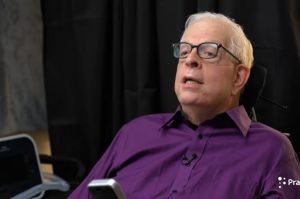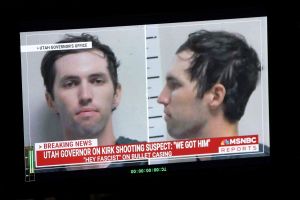Christian scientists viewed as less intelligent than their peers, study suggests

A new study conducted by researchers at Ohio University finds that nonreligious individuals tend to stereotype and hold a bias against Christians working in scientific fields because they believe religion and science are in conflict.
The research, published in the Public Understanding of Science journal, analyzed two separate studies to examine the perceptions of incompatibility between Christianity and science in the United States and how it influences nonreligious individuals' stereotypes of Christians in the field.
The first study, with a sample size of 365, found that the 214 nonreligious participants were more likely than the 151 Christian participants to perceive Christianity and science as incompatible. The second study featured 799 respondents — 520 Christians and 279 nonreligious participants.
"[M]anipulating perceived Christianity-science compatibility reduced negative perceptions of Christians' scientific ability and general intellect among nonreligious participants," the abstract states.
While nonreligious respondents perceived Christians as less intelligent, Christian respondents were more likely to perceive Christians as more intelligent and scientific than nonreligious participants.
In comments to PsyPost, study author Cameron Mackey, a doctoral candidate at Ohio University, noted that there has been "countless debates over the teaching of evolution in schools and whether Intelligent Design has a place in the classroom."
"Our research demonstrates that perceiving conflict between religion and science can have detrimental effects not only on Christians' performance and interest in science (as prior research has shown), but also on nonreligious people's stereotypes about Christians," Mackey said. "That is, because nonreligious individuals are more likely to believe that Christianity and science can't work together, they are more likely to stereotype Christians as uninterested in or incompetent at science."
Mackey added that many prominent atheists like Sam Harris and Steven Prinker opposed Francis Collins, an Evangelical Christian who served as the head of the National Institutes of Health until his retirement last year.
"We were interested in the consequences of this belief in religion-science conflict for nonreligious people's attitudes toward religious people (in this case, Christians)," Mackey stated. "That is, we wanted to know whether the belief that Christianity and science conflict with each other explains why nonreligious people stereotype Christians as incompetent in science."
Perry Enever, the founder of Canterbury Christianity and Science Interactive, told Premier Christian News that stereotypes are set up to be disproven.
"I think if you can relate to someone and get to know them, they can get to know you," he was quoted as saying. "There are all kinds of questions and stereotypes and wrong ideas that people have, and Christians can do the same things as well, sometimes."
"The Christians in this were presuming that actually the atheists were less intelligent and less into science. So I think there's a lesson for us as well, to avoid that stereotyping and getting to know the people that are asking the questions."
Earlier this month, the Museum of the Bible in Washington, D.C., opened the new exhibit "Scripture and Science: Our Universe, Ourselves, Our Place." The exhibition highlights the dynamic relationship between science and religion throughout history.
Attending the exhibit's grand opening, retired NASA astronaut Jeff Williams told The Christian Post that science doesn't "contradict" Christianity. The Christian astronaut said that because of the perception that science and the Bible conflict, he dedicated much time to studying the religious beliefs of early scientists.
"Many of the scientists in the age of science — who we all read about in our textbooks about the laws of physics and chemistry — were believers first," Williams said. "They were theologians first. People like Kepler and Newton and Faraday and Maxwell, and many others. They were driven by their faith and their understanding of their calling before God to fulfill that calling."
He contends that the "Bible supports and informs science with the elements of the mathematical order of God's Creation" and "God has equipped us to explore and extract that order and utilize it for the glory of God and the good of mankind."



























